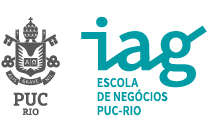RESEARCH FIELDS
PROFESSIONAL GRADUATE PROGRAM
This research field focuses on people and organization management, and covers research on four themes, namely: Organizational studies: on theories, management models, organizational structures and processes; learning and knowledge management; Critical perspectives on organizations; communications and organizational discourse; history, memory, and organizations; Studies on behavior in organizations: values and attitudes; diversity in organizations; managerial skills, leadership and power; health and well-being at work; organizational climate, culture, and change; and studies on labor relations and the meaning of work; and career and people management.
This research field analyzes the dynamics of marketing strategies, as well as the processes by which companies operate together with different market segments, and how interactive feedback from the strategic decision process takes place. It includes research and projects related to consumer behavior, consumer relations, service marketing, international marketing, online marketing, communication and semiotics, among others.
The Strategy research fields include studies and projects involving corporate strategy, competitive and collaborative strategies, modeling and measurement of organizational performance, strategic planning and strategic governance, among others, and research on Brazilian multinational companies, internationalization strategies, internationalization of corporate clusters, performance of internationalized companies, born globals, and international entrepreneurship, made in effects, among others.
The high volatility observed in various financial assets at both the Brazilian and international levels makes paramount the incorporation of risk and uncertainty into financial models. As a result, this line of research contemplates financial modeling based on the quantification of the impact of uncertainties, focusing on risk analysis from the perspective of the Theory of Real and Derivative Options, where the flexibility of decisions is modeled based on the stochastic processes of different financial assets, as well as on Energy Economics and Finance, with an emphasis on decision making in Infrastructure projects. The fields of Financial Econometrics, Valuation, and Blockchain Economics form the basis for the development and improvement of models, and the Theory of Behavioral Finance is also taken into consideration as the irrationality of financial agents is incorporated into risk management.
